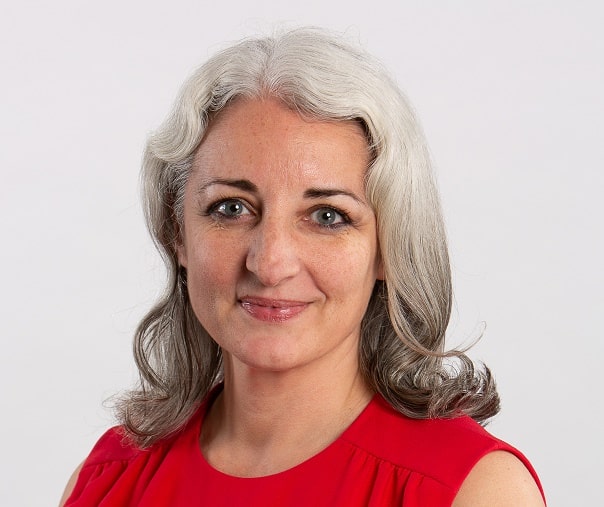
Talks are underway to bring the commissioning of mental health care inpatient services for under-18s back under local control.
The discussions have come to light on the heels of news that Thanet is in the ten Clinical Commissioning Group (CCG) areas sending children and young people with mental health problems the furthest distances for care.
Thanet comes in ninth, sending under 18s needing specialist care up to 208 miles away because of a lack of local beds in the 2017-18 period.
The CCG sending youngsters the furthest distance in Canterbury with NHS England data showing at least one patient sent a staggering 285 miles away.
The figures were released following a Freedom of Information request by Labour MP Barbara Keeley, the shadow cabinet member for mental health.
The Labour Party’s parliamentary candidate for South Thanet, Rebecca Gordon-Nesbitt, has joined calls for the situation to be recognised as “a national scandal.”

She said: “Vulnerable children being sent hundreds of miles from their families for treatment because of a lack of beds locally is a national scandal.
“Anyone coping with a mental health problem needs support from family and friends. All the evidence shows that sending young people far from home makes recovery much more difficult. NHS England’s own policy states that patients should be treated as close to their homes as possible.
“Sending troubled under-18-year-olds away from friends and family can be absolutely terrifying for them. It increases the chances of them self harming and worse. We must act to stop this appalling practice.
“Think of the worry and stress put on parents and friends by sending their young loved ones away. It’s absolutely heart-breaking, and it is all down to the abject failure of this government to invest in the NHS.”
Bed commissioning
Youngsters from Thanet, including those with complex mental health issues such as a risk of self-harm or suicide, severe depression, eating disorders, psychosis and personality disorders, are usually cared for in London by the South London and the Maudsley mental health trust but if there are no beds there, and a child or teenager urgently needs to be admitted as an inpatient, they will go to the next nearest suitable place.
The beds have been commissioned by NHS England since the creation of CCGs in 2013. It was viewed that very specialised services needed by a small number of people should be organised at a national level.
However, The Isle of Thanet News has been told that CCGs are working to bring the service under their control, which could mean a greater number of beds in the south east.
Thanet and other Kent CCGs are understood to be looking at a scheme which would involve working with Surrey and Sussex to try to find a more local solution.
Out of area care
Overall, the NHS England data shows that 1,039 children and adolescents in England were cared for out of area, often 100 miles away or more, in 2017-18.
There are currently around 1,400 child and adolescent mental health inpatient beds in England
Pledges
The NHS has pledged to end ‘inappropriate’ placements by 2020.
A statement from The Department of Health and Social Care said: “It is completely unacceptable for patients to be sent away from their family and friends for treatment. That’s why the NHS is opening more specialist beds to tackle this and we have committed to ending inappropriate placements altogether by 2020.
“We are transforming mental health services with record investment and an ambitious plan to increase the workforce and will announce further improvements to mental health provision later this year as part of our long-term plan for the NHS.”
Rebecca Gordon-Nesbitt says a Labour government would axe out of area placements altogether
She said: “Labour has pledged to end all out-of-area mental health placements by 2019 and to invest more of the mental health budget in services for children and young people so that money reaches frontline services.”
Parliament
South Thanet MP Craig Mackinlay has been urged to bring the issue of mental health services for children up in Parliament.

The request was sent in a letter from Cllr Karen Constantine (pictured), Dr R L Symonds, consultant psychiatrist; Jane Hetherington principal psychotherapist and operational lead at Kent Early Intervention Service; Sharon Goodyer. Founder and CEO Our Kitchen on the Isle of Thanet (CIC); Cllr Jenny Matterface and Cllr Barry Lewis.
In it they recite figures from a recent report stating more than 500 children and young people assessed as needing Tier-3 child and adolescent mental health services had waited more than a year to start treatment.
New data shows nearly half of the 11,000 young people assessed ‘as needing care’ waited more than 18 months. In March figures showed up to 800 hundred vulnerable children aged 8 – 11 years old are waiting for up to two years for an assessment for autistic spectrum conditions and attention deficit / hyperactivity disorder.
They write: “The figures, released in March this year by Kent & Medway Clinical Commissioning Groups (CCG) clearly show that too little money was identified for the contract, meaning that much needed assessments and treatments are having to wait.
“We urgently need more ring-fenced money and importantly more professional staff for the provision of mental health services to our children.”
Education Policy Institute report
According to a report last year by the Education Policy Institute there were 2,434 admissions of children and young people aged 18 or under with mental health conditions into hospital between October and December 2016. This has fallen in each quarter since data was first collected, in the period April – June 2016, when there were 4,399 admissions.The most common reason for admission is an eating disorder.
During the month of March 2017, there were 1,164 young people aged 18 or under in hospital because of a mental health condition.
The majority (58.4 per cent) of those in inpatient care are aged between 15 and 18.
The Education Policy Institute review reached the conclusion that pressures on beds were found to be related to:
variations in practice around admissions;
availability of intensive community services;
management of delayed discharges;
changes in commissioning arrangements from a local to a national approach;
bed closures; and staffing problems.
The review also found that the geographical distribution of beds across the country was uneven

